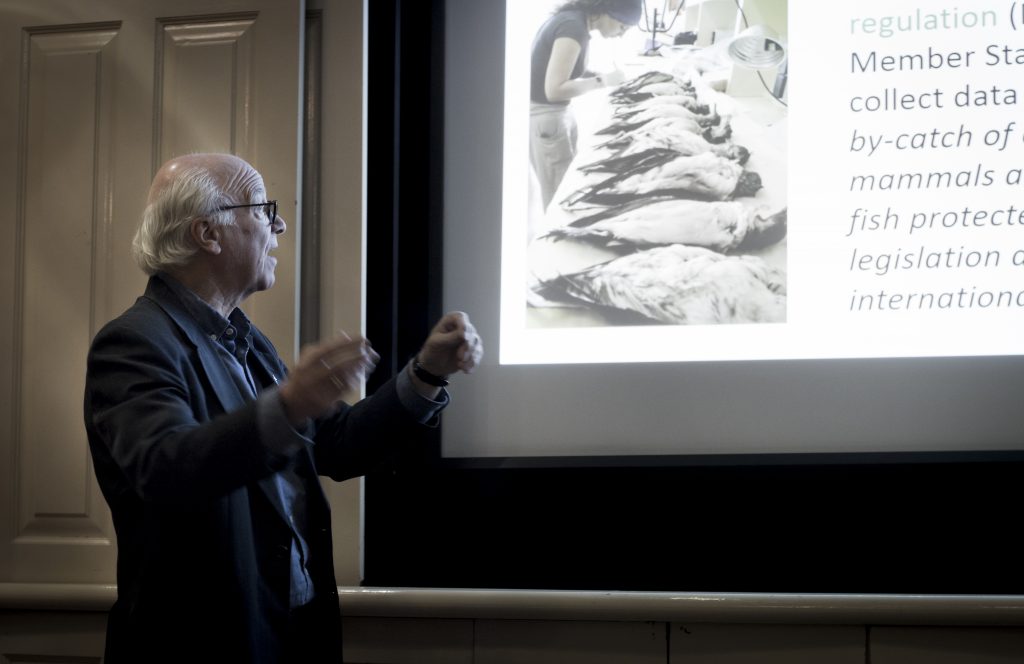Meeting explores environmental and economic downsides of overfishing

November 10th, 2017
The environmental and economic downsides of overfishing in Ireland and the opportunities for sustainable fisheries were explored at an event in Dublin yesterday.
The Seabed to Seabird event was organized by BirdWatch Ireland (BWI) in collaboration with the Royal Society for the Protection of Birds (RSPB) and the Pew Charitable Trust.
The event aimed to share information and raise awareness on overfishing in Ireland in the lead up to the EU 2018 fishing quota meetings in Brussels due to take place in December.
These fishing quota decisions are particularly important due to Ireland’s legal obligation under the Common Fisheries Policy (CFP) to end all overfishing by 2020 at the latest.
Despite this fast-approaching deadline for all EU member states, fishing quotas continue to be set above levels recommended by scientists.
Fintan Kelly, Policy Officer with BirdWatch Ireland, said that in terms of overfishing, Ireland has been one of the “worst offenders in recent years within the EU”.
Out of all EU member states, Ireland had the worst fishing quotas in 2015 (26 per cent above scientific advice) and joint worst (10 per cent above scientific advice) in 2016.

Dr Euan Dunn, RSPB at Seabed to Seabird, Dublin Photo: james Orr
According to a New Economics Foundation (NEF) report, Ireland’s fishing quotas are on average 25 per cent above scientific advice, making it the fourth worst EU member state for overfishing.
According to the NEF, by allowing the fish stocks to recover and setting fishing quotas at the maximum sustainable yield, Ireland could increase its landings by 200,000 tonnes per year generating an additional €270 million to the Irish economy.
Mr Kelly said, however, that any further delays in addressing the “fast approaching” deadlines will lead to a “sudden, large reduction in quotas” that may lead to “significant socioeconomic consequences”.
RSPB Principal Advisor, Dr Euan Dunn, told the audience that the mismanagement of fish stocks is damaging to the marine environment, as well as having negative economic impacts
In particular, he stressed the impact the threat of overfishing to seabirds, either directly or indirectly.
According to the RSPB, the accidental killing of seabirds as so-called ‘bycatch’ in fisheries is responsible for the death of hundreds of thousands of seabirds globally every year.
This toll includes tens of thousands of albatrosses, the most threatened group of seabirds, which get caught up in longline fisheries around the world.
Fisheries ministers from all EU member states, including Ireland’s Marine Minister Michael Creed, will meet in Brussels in December to negotiate fishing quotas for 2018.
[x_author title=”About the Author”]







